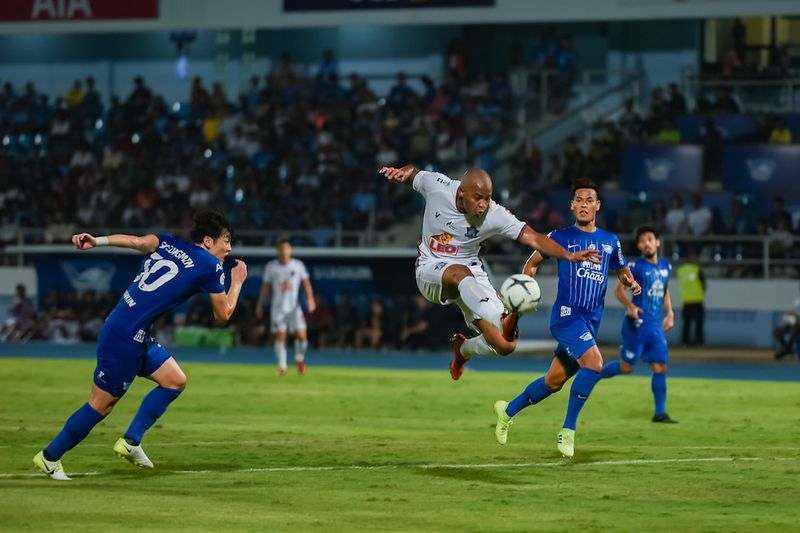Roy Keane Criticizes Mohamed Salah’s Reaction to Being Substituted
A Display of Frustration and Discontent
In Liverpool’s recent 1-1 draw against Chelsea, Mohamed Salah found himself at the center of attention as he was substituted by manager Jurgen Klopp with just under 15 minutes remaining in the match. The Egyptian forward’s reaction to the decision was less than favorable, with visible signs of frustration and discontent. Salah shook his head and sat on the bench with his arms in the air, seemingly ignoring his boss as he took his seat. The incident was captured on camera, drawing attention from fans, pundits, and notably, former Manchester United captain Roy Keane.
Speaking as a pundit on Sky Sports, Keane expressed his disapproval of Salah’s attitude, stating, “It’s okay to be upset but don’t keep it going too long. Sit down and shut up. You have to take it.” Keane’s blunt criticism highlighted what he perceived as an unnecessary prolongation of Salah’s frustration and a lack of respect for the manager’s decision.
The Importance of Emotional Control and Sportsmanship
Keane’s comments bring to light an ongoing debate in the world of sports: how should athletes react to adverse situations, particularly when they do not agree with decisions made by their coaches? On one hand, it can be argued that players, including those of Salah’s caliber, are entitled to their emotions and should be allowed to express their frustration. After all, football is an intensely competitive sport, fueled by passion and personal drive. It is natural for players to feel disappointment when removed from the action, especially if they believe they could have made a positive impact.
However, on the other hand, there is a certain level of sportsmanship and professionalism expected from athletes, where they must maintain composure and respect for their coaches and teammates. Accepting decisions made by the manager, even if they are disagreeable, is crucial for maintaining team unity and fostering a positive atmosphere. It is not uncommon for players to be substituted during a match, as coaches often make tactical decisions based on the team’s needs, game situations, and the physical condition of the players.
Jurgen Klopp’s Perspective and Response
In response to Salah’s reaction, Klopp himself stated that he understood the player’s disappointment, acknowledging that Salah was on the verge of breaking a record for goals scored in the opening game. Despite this understanding, Klopp emphasized the importance of stability and fresh legs in the latter stages of the match, highlighting the intense nature of the game that required strategic substitutions.
Klopp’s response indicates a nuanced understanding of the situation. While he acknowledges Salah’s disappointment, he also recognizes the team’s collective needs. Klopp’s perspective suggests that he values open communication and an understanding of his players’ desires, but ultimately, tactical decisions must be made for the benefit of the team as a whole.
Editorial: Balancing Emotions and Professionalism in Sports
The incident between Salah and Klopp raises important questions surrounding the role of emotions and professionalism in the world of sports. Athletes are human beings with strong emotions and desires, but they also represent their clubs and teammates on and off the field. Striking a balance between expressing one’s emotions and maintaining professionalism is crucial for the success and harmony of a team.
It is important for players, especially those in the spotlight, to remember that their reactions have consequences beyond their immediate frustration. Their behavior sets an example for young fans and can influence public perception of themselves and their clubs. In an era where footballers are role models to many, acting with grace and respect, even in times of disappointment, is essential.
Conversely, coaches and management should also take into consideration the emotional well-being of their players. Treating players with empathy and understanding can lead to improved morale and a stronger sense of teamwork. When athletes feel heard and valued, they are more likely to accept decisions gracefully.
Advice: Embracing Constructive Dialogue
To find a balance between emotions and professionalism, it is crucial for players and coaches to embrace constructive dialogue. Communication is key in understanding each other’s perspectives, needs, and expectations. By fostering an atmosphere of openness and respect, players and coaches can work together to navigate challenging situations and make decisions that are in the best interest of the team.
Furthermore, coaches should encourage their players to channel their emotions in positive ways. Instead of letting frustration build up, players could use that energy to improve their performance or motivate themselves to prove their worth in future opportunities. Likewise, players should strive to become mature and resilient in facing challenges, recognizing that setbacks are an inherent part of any competitive sport.
In conclusion, incidents like the one involving Mohamed Salah and Jurgen Klopp shed light on the delicate balance between emotions and professionalism in sports. While it is natural for athletes to feel disappointed or frustrated, they must also uphold the values of sportsmanship and respect. Coaches, on the other hand, should prioritize open communication and empathetic leadership to foster a positive team environment. By embracing constructive dialogue and understanding, players and coaches can navigate tensions, leading to a more harmonious and successful team dynamic.

<< photo by cottonbro studio >>
The image is for illustrative purposes only and does not depict the actual situation.
You might want to read !
- Wordle Adventures: A Reflective Analysis of August 14, 2023
- Roy Keane Criticizes Mo Salah for Throwing Tantrum against Chelsea: A Reflection on Professional Conduct
- Exploring Pakistan’s Future: Ashraf Ghani Sworn In as Caretaker Prime Minister on 77th Independence Day
- Roy Keane Reveals Demeanor Towards Daniel Sturridge: Unveiling the Narrative Behind the Alleged “Clenched Fist”
- “The Enigmatic Brilliance of Roy Keane: Insight from a Manchester United Legend”
- The Dawn of a New Government: Pakistan’s Caretaker Prime Minister Takes Office amidst Celebration
- Hollywood’s Dark Side: Charlize Theron’s Terrifying Encounter and Fight for Justice
- “Gadar 2: Sunny Deol Shines in a Mediocre Sequel”
- The Downside of the New Premier League: 15 Things to Complain About
- France and Scotland Clash in RWC23: Townsend Remains Resolute Following Intense Encounter
- France’s Dynamic Dupont Shines: Key Takeaways from France v Scotland Clash
- Battle at the Green: Lilia Vu Outshines Charley Hull in AIG Women’s Open
- Examining the Tragic Demise of Sinead O’Connor: Delving into the Investigation, Last Moments, and Legacy
- Breaking Barriers: MotoGP Riders Convene for Pivotal Talks on British GP Sprint
- “Gaethje’s Head Kick Masterclass: Claiming the BMF Title in Jaw-Dropping Fashion at UFC…”




